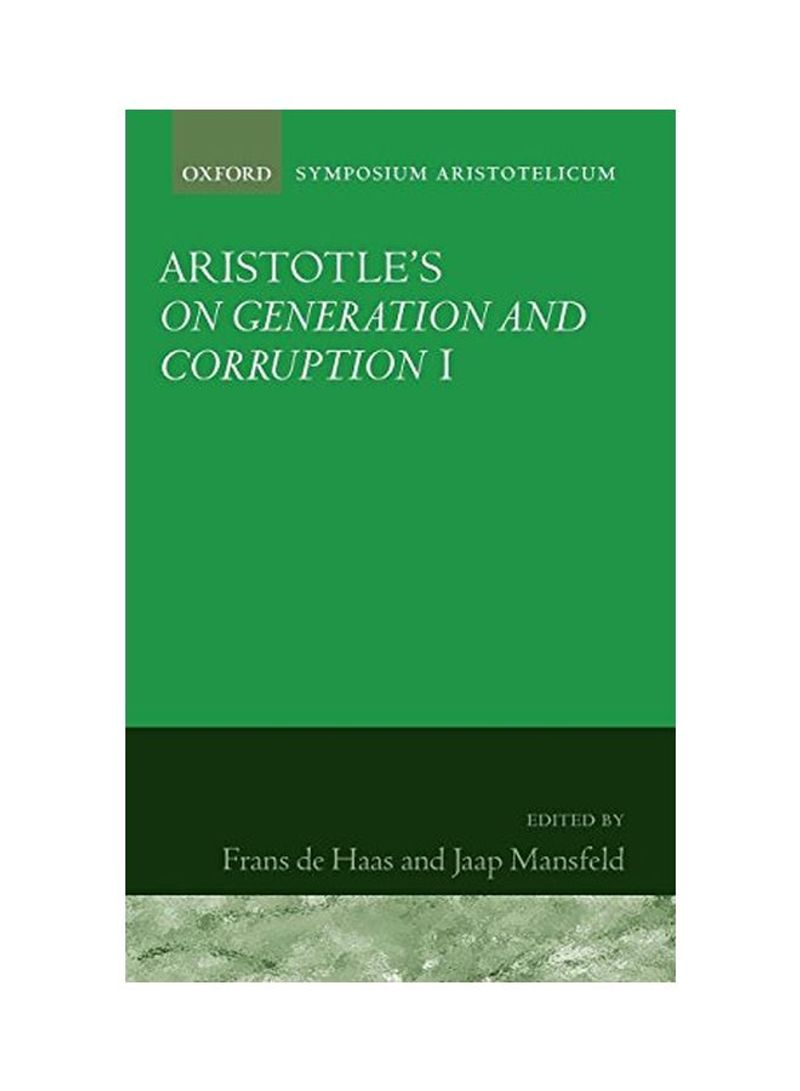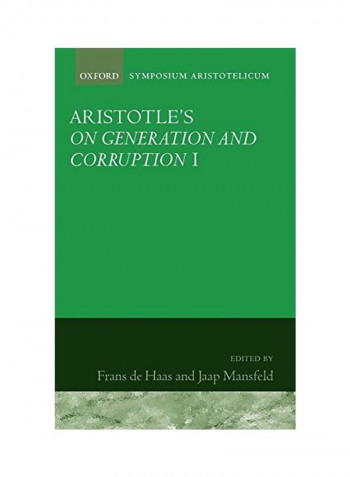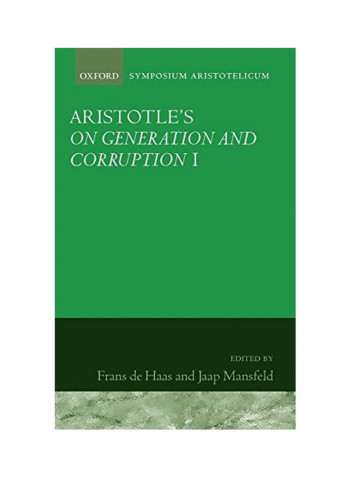Aristotle's On Generation And Corruption I: Symposium Aristotelicum Hardcover
Recommend
Sort by
Rating
Date
Specifications
Author 1
De Haas, Frans
Book Description
Jaap Mansfeld and Frans de Haas bring together in this volume a distinguished international team of ancient philosophers, presenting a systematic, chapter-by-chapter study of one of the key texts in Aristotle's science and metaphysics: the first book of On Generation and Corruption. In GC I Aristotle provides a general outline of physical processes such as generation and corruption, alteration, and growth, and inquires into their differences. He also discusses physical notions such as contact, action and passion, and mixture. These notions are fundamental to Aristotle's physics and cosmology, and more specifically to his theory of the four elements and their transformations. Moreover, references to GC elsewhere in the Aristotelian corpus show that in GC I Aristotle is doing heavy conceptual groundwork for more refined applications of these notions in, for example, the psychology of perception and thought, and the study of animal generation and corruption. Ultimately, biology is the goal of the series of enquiries in which GC I demands a position of its own immediately after the Physics. The contributors deal with questions of structure and text constitution and provide thought-provoking discussions of each chapter of GC I. New approaches to the issues of how to understand first matter, and how to evaluate Aristotle's notion of mixture are given ample space. Throughout, Aristotle's views of the theories of the Presocratics and Plato are shown to be crucial in understanding his argument.
ISBN-13
9780199242924
Language
English
Publisher
Oxford University Press
Publication Date
9 December 2004
Number of Pages
360
Editor 1
Frans De Haas
Editor 2
Jaap Mansfeld
Editorial Review
Of great interest to scholars and graduate students working on ancient natural science and philosophy. * Ian Mueller, Notre Dame Philosophical Reviews * The studies in this collection are well-informed, intelligent and illuminating ... It provides a most thorough and engaging study. * Daniel W Graham, The Classical Review *



